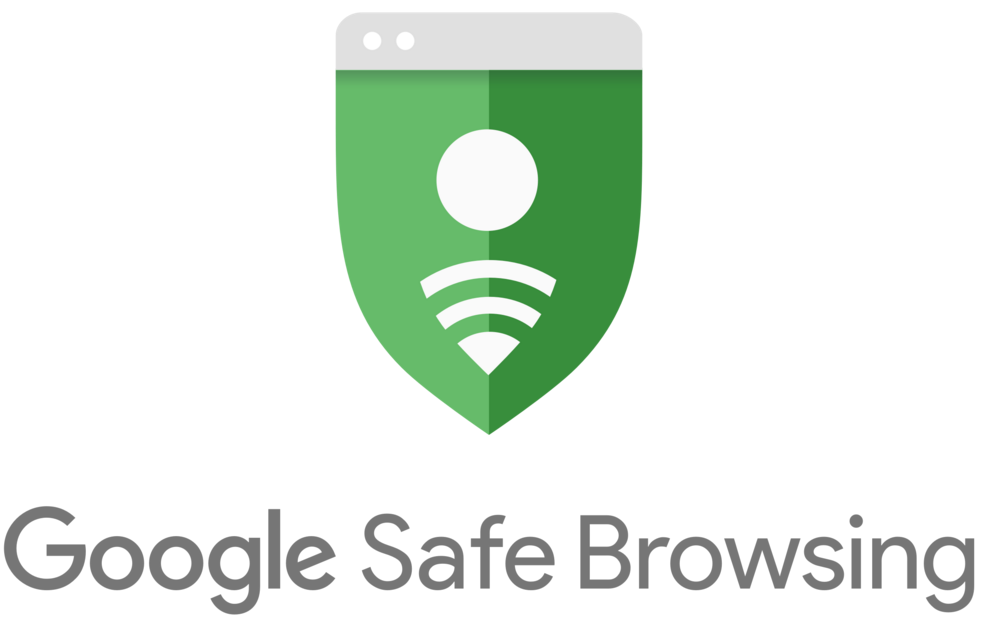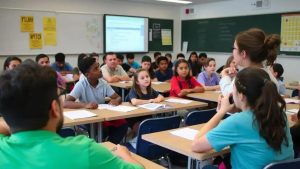Academic freedom threats: understanding the impact

Anúncios
Academic freedom is the essential principle that allows educators and students to share ideas and conduct research without censorship, vital for fostering a dynamic and innovative educational environment.
Academic freedom threats are becoming increasingly relevant in today’s educational landscape. Have you ever wondered how these threats affect the pursuit of knowledge and truth in academia? Let’s dive into this important topic.
Defining academic freedom
Understanding academic freedom is essential for appreciating its role in education. It refers to the right of educators and students to pursue knowledge and express ideas without interference or censorship. This principle is fundamental for fostering an environment where creativity and critical thinking can flourish.
Anúncios
Key Aspects of Academic Freedom
There are several important components that define academic freedom. These aspects ensure that academics can operate within a space that respects their ability to explore controversial or challenging topics.
- **Independence:** Scholars must have the autonomy to conduct research and teach without outside pressure.
- **Expression:** Educators should be free to express their views, even if they contradict prevailing opinions.
- **Research:** The freedom to pursue inquiries that may be politically or socially sensitive is vital.
- **Protection:** Institutions must protect faculty from retaliation or consequences for expressing controversial ideas.
All of these elements work together to create a robust academic environment. When academic freedom is upheld, it not only supports individual scholars but also enriches the entire educational system.
This freedom facilitates diverse perspectives and encourages healthy debate among students and faculty. Furthermore, protecting academic freedom is crucial for maintaining the integrity of educational institutions. Without it, the pursuit of truth and knowledge may be compromised.
Anúncios
More than just a concept, academic freedom represents a foundation for democratic principles within education. It allows for the free exchange of ideas, fostering an atmosphere where innovation can thrive. Therefore, understanding its definition helps contextualize the broader implications it has on society.
Historical context of academic freedom

The historical context of academic freedom shapes our understanding of its importance today. Academic freedom has evolved over centuries, influenced by significant events and ideologies. This evolution reflects the ongoing struggle for intellectual independence.
In the early days of higher education, many universities operated under religious institutions, which limited the scope of inquiry. Scholars often faced repercussions for exploring ideas that contradicted prevailing religious beliefs. As the Enlightenment emerged in the 18th century, the concept of academic freedom began to take shape. Thinkers advocated for the importance of reason and personal judgment in knowledge pursuit.
The 20th Century Shift
By the 20th century, academic freedom gained recognition as a vital principle in higher education. Events like World War II highlighted the need for intellectual safety. Many scholars faced persecution for their beliefs.
- **Increased Protection:** Institutions began to develop policies to protect faculty from political pressures.
- **International Support:** Organizations like the AAUP (American Association of University Professors) were established to advocate for these rights.
- **Global Influence:** The concept expanded beyond Western education, influencing global movements.
As we moved into the late 20th and early 21st centuries, academic freedom became integral to discussions surrounding human rights and democracy. Movements advocating for social justice also recognized the role of academic institutions in fostering critical discourse.
Various challenges to academic freedom have emerged in contemporary society, including political pressures and funding limitations. Understanding the historical context helps highlight the importance of protecting this freedom as we move forward.
Current threats to academic freedom
Today’s academic environment faces various current threats to academic freedom. Understanding these challenges is essential for protecting the integrity of education. One significant threat arises from political pressures on universities.
In many countries, governments influence educational institutions, imposing restrictions on what can be taught or researched. These pressures can deter scholars from exploring certain topics, hindering the pursuit of knowledge.
Social Media and Public Opinion
Another threat comes from the rise of social media, where public opinion can sway academic discourse. Scholars may hesitate to express unpopular views due to potential backlash.
- **Online Harassment:** Academics face harassment for sharing controversial opinions.
- **Censorship:** Universities may self-censor to avoid public outcry.
- **Echo Chambers:** Social media can create environments where only certain ideas are accepted.
These dynamics also affect the funding of research. Scholars often rely on grants, and potential funders may steer clear of projects they find controversial. Thus, this financial concern can limit research opportunities in critical areas.
Additionally, the rise of cancel culture has implications for academic freedom. The fear of losing one’s job or reputation can lead academics to self-censor their work. This type of atmosphere discourages open dialogue, which is vital for healthy academic environments.
Addressing these challenges requires awareness and action from both institutions and individuals. Advocating for academic freedom is essential to ensure that all voices can be heard and explored. By recognizing these threats, the academic community can unite to defend the principles of inquiry and expression.
Impact of academic freedom threats on education

The impact of academic freedom threats on education is profound and far-reaching. When academic freedom is compromised, the entire educational system suffers. Students and educators alike face limitations that can stifle creativity and critical thinking.
One major consequence is the chilling effect on research. Scholars may avoid exploring complex or controversial topics, fearing backlash or funding losses. This leads to a less diverse range of ideas and perspectives in scholarly work.
Effects on Curriculum
Furthermore, the curriculum can become narrow when academic freedom is under threat. Educators may feel pressured to teach certain viewpoints while ignoring others. This lack of balance can lead to a less comprehensive education for students.
- **Reduced Engagement:** Students might feel less motivated to participate in discussions that don’t cover a variety of opinions.
- **Limited Critical Thinking:** A restricted curriculum can impede students’ ability to think critically about issues.
- **Censorship:** Topics that are vital for understanding current events may not be addressed.
Moreover, when academic freedom is challenged, the quality of education declines. Professors may shy away from fostering an open dialogue, resulting in a less interactive and engaging learning environment. This can hinder the development of important skills, such as debate and argumentation.
Additionally, the overall intellectual health of the community suffers. When academic institutions fail to protect academic freedom, they become less relevant and impactful in society. A vibrant academic environment encourages students to be curious, to ask questions, and to engage with the material in a meaningful way.
Therefore, addressing threats to academic freedom is crucial for maintaining the quality of education. As students become future leaders, ensuring they receive a well-rounded education becomes even more vital.
Responses to protect academic freedom
Responses to protect academic freedom are critical in safeguarding the integrity of education. Multiple strategies exist to address the challenges faced by academic institutions today. Advocacy and policy changes play crucial roles in this effort.
One effective approach is the formation of advocacy groups. These organizations work tirelessly to defend the rights of scholars across the globe. They help ensure that academic freedom is respected and upheld in educational settings.
Institutional Policies
Developing robust institutional policies is vital for protecting academic freedom. Universities should implement clear guidelines that support educators and researchers in their work. This can include policies that:
- **Establish protections** against harassment and retaliation for speaking out.
- **Encourage diverse viewpoints** in the curriculum.
- **Support funding** for controversial research topics.
Moreover, collaboration is essential. Academic institutions can partner with civil rights organizations to address threats to freedom. By working together, they can amplify their voices and push for necessary reforms.
Engaging in public discourse also helps raise awareness about the importance of academic freedom. Hosting workshops, lectures, and discussions can foster a culture that values open dialogue. These events invite various opinions, creating a more dynamic academic environment.
Furthermore, students have a significant role in these responses. By advocating for their rights and expressing their concerns, they can influence institutional policies. A united student body can prompt university leaders to prioritize the protection of academic freedom.
Overall, robust responses to threats against academic freedom require action from everyone involved in the educational process. By working together, the academic community can promote a safe and open environment for all ideas.
Future of academic freedom in higher education

The future of academic freedom in higher education is a topic of great significance as we navigate the complexities of today’s educational landscape. Ongoing threats and challenges demand that we consider how best to protect and uphold this essential principle.
One promising aspect for the future is the growing recognition of academic freedom as a human right. Discussions around education are increasingly including perspectives that highlight the importance of free inquiry and expression. This shift may lead institutions to reinforce protections around academic work.
Technological Impact
The advancement of technology presents both challenges and opportunities for academic freedom. Online learning platforms enable greater access to education, allowing diverse voices to be heard. However, they also raise concerns about surveillance and censorship.
- **Wider Reach:** More students can access education and engage with varied perspectives.
- **Risk of Censorship:** Online platforms may impose limitations on content based on political or social pressures.
- **Adaptive Learning:** Technology allows for personalized education, fostering critical thinking on a broader scale.
Furthermore, the collaboration between institutions and advocacy groups is essential for securing a brighter future. By uniting to defend academic freedom, these entities can create stronger support systems. This collaboration can also ensure that diverse viewpoints are included in discussions, fostering a culture of inclusivity.
Moreover, students today are more engaged and vocal about their rights. As they advocate for academic freedom, they push institutions to address concerns and adapt to modern challenges. This student activism is vital for cultivating a vibrant academic environment that encourages open dialogue.
Ultimately, the future of academic freedom in higher education will depend on the collective efforts of educators, students, and institutions. Vigilance and advocacy are necessary to create an educational landscape where free thought thrives and diverse ideas can be explored.
In conclusion, the importance of academic freedom cannot be overstated. It is essential for fostering a vibrant educational environment where ideas can flourish. As we look to the future, we must remain vigilant against threats and work together to protect this vital principle. By advocating for open dialogue, promoting diverse perspectives, and ensuring institutional support, we can create a welcoming space for both educators and students. The future of education depends on our commitment to maintaining and enhancing academic freedom.
FAQ – Frequently Asked Questions about Academic Freedom
What is academic freedom?
Academic freedom is the principle that allows educators and students to explore, discuss, and disseminate ideas without censorship or restraint.
Why is academic freedom important in education?
It fosters an environment where creativity and critical thinking can thrive, allowing diverse ideas to be explored.
What are some threats to academic freedom today?
Current threats include political pressures, social media backlash, and funding limitations that influence what can be taught or researched.
How can individuals help protect academic freedom?
Individuals can advocate for open dialogue, support educational institutions in policy-making, and engage in discussions about the importance of academic freedom.







